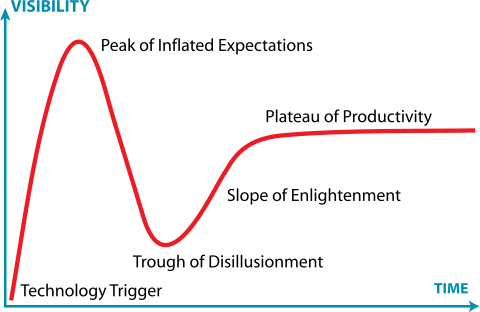This post is inspired by an article posted June 15th, 2022 on https://www.prnewswire.com/ titled “Latest Study from Avery Point Group Concludes: Demand for Lean Professionals Remains Strong, While Six Sigma Talent Demand Continues to Decline”.
In short, the mentioned study found “ongoing robust demand for Continuous Improvement skills overall, with Six Sigma talent demand showing further signs of waning relative to Lean”
The waning demand for Six Sigma
Some figures, from the original post, to back it up:
- job postings looking exclusively for Six Sigma skills, with no mention of Lean in the job specification, plummeted to only 13% – down from 27% in their last talent demand study in 2013
- job postings seeking Lean skills only, with no mention of Six Sigma, leaped to 62% – up from 41% (2013)
According to Tim Noble, managing principal and partner of APG (provider of the article’s content),several factors that may be driving this waning demand for Six Sigma (rephrased by me):
- Companies feel purer Lean skill will be more accretive to their existing continuous improvement needs, and may be better served by Lean’s more immediate and practical focus on waste, flow, and flexibility.
- Companies are still in need of further Lean maturation and development, and have underestimated time and talent resources to shift their Lean initiatives from a tools-based approach to a fully embedded Lean into their operating culture.
- Many companies continue to focus their initial and ongoing Continuous Improvement efforts, i.e. leaning out their operations: eliminating waste, putting standard work in place, and improving flow/throughput. A later focus on process variation reduction may call for a Six Sigma approach.
The article also points to “the plethora of Six Sigma training and certification companies that still exist today”, and “poor training sources that do great harm to both candidates’ credibility and the perception of Six Sigma as a skill set in the market.“
From my perspective
From my French perspective and what I’ve witnessed over the years, indeed, many training and consulting firms have sensed the business opportunity to sell colored belts and certificates, with an ironic very broad band of quality of content/training. Ironic for a methodology supposed to reduce variability, isn’t it?
Some trainings are watered down to merely using DMAIC, which is a slightly more elaborate framework than PDCA, but very similar in essence. Nothing to be impressed about, even with a fancy belt and certificate attached to it. Many Six Sigma training contents include more Lean stuff than statistical math-based stuff, which should be Six Sigma’s core. This, to me, is evidence of the trainers’ and/or training companies’ limited expertise on the subject as well as the effort to not frighten trainees with too much statistics and math.
Until recently, all recruitment openings for some industries required Six Sigma Black Belts or Master Black Belts certifications for continuous improvement or Operational Excellence, even so it was obvious that dealing with statistical tools would not be frequent.
This hype about Six Sigma, belts and certificates spread to Lean, with companies requiring Lean Belts and certificates. With the same side effect on opportunists suddenly selling trainings in a field they turned 20+ years experts overnight.
The Six Sigma hype seems to be over in France as well, with far less mentions in the requirements for new hires. Can we say that Six Sigma is out of fashion? Yes probably. At least it lost its shine to companies and recruiters that themselves had little idea about what Six Sigma truly is.
Is Six Sigma dead?
For methodology and tools fashionistas, maybe they’ll consider Six Sigma dead. Or at least no more of interest, which may be synonymous in their mind.
Is Six Sigma dead? I don’t think so. If we make a parallel with the Gartner’s Hype Cycle, I would say that Six Sigma in its life cycle is somewhere between the Trough of Disillusionment, the Slope of Enlightenment and the Plateau of Productivity.
What is your experience? What are your thoughts? You’re welcome to share in the comments.

As someone who is certified and practice both Lean and Six Sigma, I think there is a fundamental misconception about Lean, Kaizens & Six sigma. You really cannot solve complex issues with lean (waste reduction), and most people misuse ( and I have encountered this a lot from executives) the word lean to reference Kaizens or Six Sigma. All three are very different in nature and the progression is Lean –> Kaizen –> Six Sigma based on complexity of the problem. So its not surprising to see most HR related job postings mentioning lean (waste reduction) as that probably means that the company is in need of any of the three solutions. Also, lean is simple to understand by pretty much anybody, so that’s the word that gets tossed around more so than Kaizens but i would argue that the vast majority of processes need Kaizens more that waste reduction because the issues they deal with typically involves multiple departments within an organization, thus lean will not suffice to help solve the problem.
LikeLike